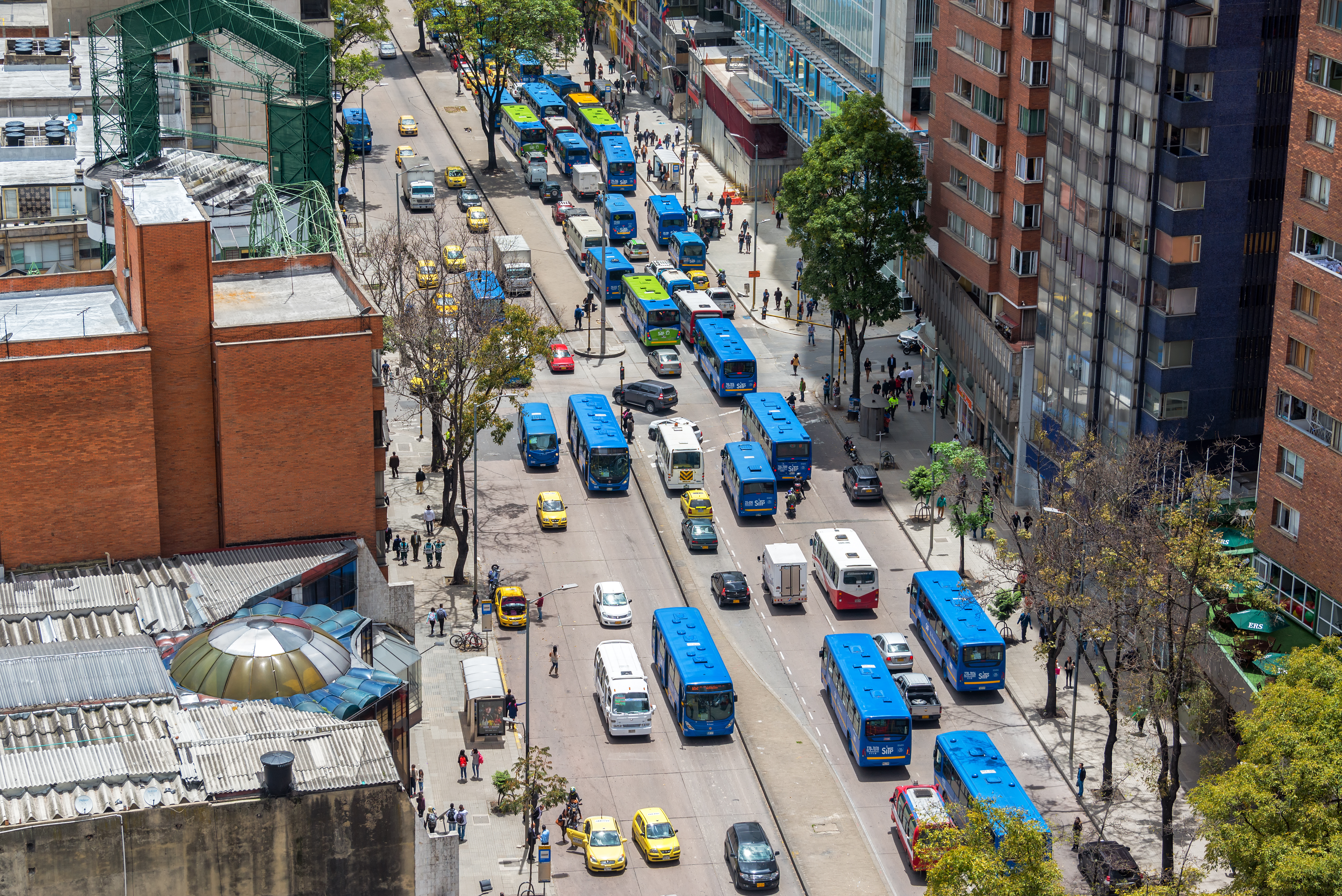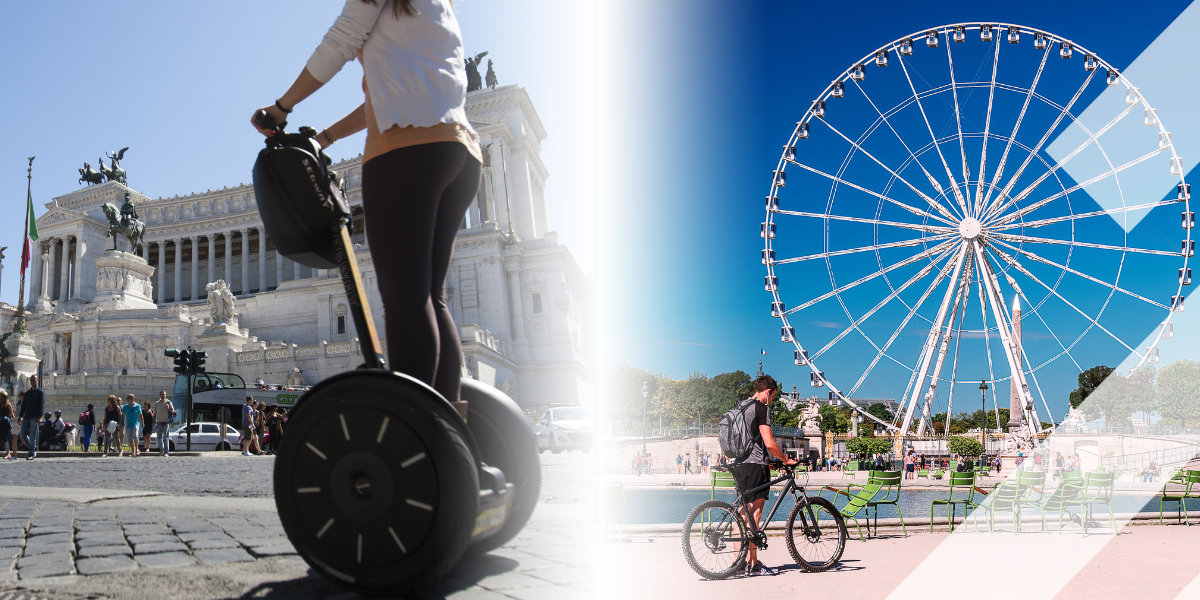Urban mobility startups reshaping Asia, the Middle East, and South America with ingenuity, perseverance and code.
As urbanisation continues to bloom across the globe (although some may say that bloom has too many positive connotations), a new generation of mobility startups is reimagining how cities move. From Jakarta to Jeddah and Bogotá to Bangalore, innovative companies are addressing some of the world’s most pressing transport challenges – congestion, pollution, informality, and lack of infrastructure – through bold, cutting-edge tech-driven solutions.
While global giants like Uber and Bolt still have a strong presence, it’s increasingly local startups that are defining the future of urban mobility across Asia, the Middle East and South America. Armed with mobile-first strategies, deep cultural understanding, and a passion for equitable transport, these disruptors are not just building businesses – in many cases they’re transforming lives and futures.

(Credit: Bruno Coelho/Dreamstime.com)
From Jakarta to Jeddah and Bogotá to Bangalore, innovative companies are addressing some of the world’s most pressing transport challenges – congestion, pollution, informality, and lack of infrastructure – through bold, cutting-edge tech-driven solutions.
Asia: Mobility Super-Apps and Electric Frontiers
Asia’s urban mobility scene is arguably the most mature among the three regions, fuelled by dense populations, government investment and digital infrastructure. In countries like India, Indonesia, Vietnam and China, startups are scaling rapidly, often blending ride-hailing, logistics, micromobility, and financial services into integrated ecosystems.
As a prime example, Gojek, Indonesia’s homegrown ‘unicorn’ that began as a motorbike taxi-hailing app, is now offering over 20 different services including payments, deliveries (and even massages), all in one app. In Southeast Asia, Grab dominates the landscape, leveraging mobility as the backbone of a broader digital economy.
Meanwhile, in India, Ola is not only a ride-hailing leader but also investing heavily in electric vehicle (EV) infrastructure through its spinoff Ola Electric, which produces e-scooters and is building a massive Gigafactory in Krishnagiri in Tamil Nadu for the sole purpose of battery production.

(Credit: Seemanta Dutta/Dreamstime.com)
Ola is not only a ride-hailing leader but also investing heavily in electric vehicle (EV) infrastructure through its spinoff Ola Electric, which produces e-scooters and is building a massive Gigafactory in Krishnagiri in Tamil Nadu for the sole purpose of battery production.
Electrification as a Disruptor
Electrification is a central theme in Asia’s mobility playbook. China remains the global leader, with startups such as Xpeng Motors and NIO challenging Tesla and developing autonomous EVs. In Vietnam, VinFast has pivoted from traditional cars to electric vehicles, with growing international ambitions.
Another fast-growing player is Taiwan’s Gogoro, which pioneered a battery-swapping network for electric two-wheelers. Its tech-first model is being exported to India, Indonesia and the Philippines, where traffic-clogged streets make electric scooters a natural fit.
Innovating for the Informal
While megacities like Seoul and Tokyo enjoy world-class transit, startups in cities such as Dhaka, Manila, and Hanoi are focusing on digitising informal transport – jeepneys, auto-rickshaws, and minibuses – making routes more predictable and payments cashless. Companies like SWVL (before its pivot) and local innovators are experimenting with shared shuttle systems and commuter subscriptions tailored to underserved urban zones.
Middle East: From Oil to Algorithms
The Middle East’s urban mobility startup ecosystem is still emerging, but it’s gaining traction thanks to increased investment, government support for smart cities, and a push to diversify away from oil economies.
Smart Cities as Launchpads
Projects such as NEOM in Saudi Arabia – an US$8 trillion futuristic Gigacity – signal the region’s commitment to digital urbanism. While some projects remain aspirational, they create fertile ground for startups developing altogether more achievable autonomous, electric and integrated transit solutions.
In the UAE, Careem (acquired by Uber in 2020) remains a regional trailblazer. Originally a ride-hailing app, it’s expanding into a "super app" model, offering bike-sharing, delivery and fintech services. Fenix, a UAE-based startup, provides e-scooters and recently launched Fenix Pay, integrating mobility and digital wallets.
While some projects remain aspirational, they create fertile ground for startups developing altogether more achievable autonomous, electric and integrated transit solutions.
Shared and Sustainable
Saudi Arabia’s Ejaro is tapping into the peer-to-peer car rental space, aligning with youth interest in car access over ownership. In Egypt, SWVL grew rapidly by offering app-based minibus services, targeting commuters overlooked by public transport. Though it faced operational challenges during its SPAC-backed US expansion, SWVL still operates in key markets and helped put African and Middle Eastern mobility on the investor radar.

(Credit: Ejaro)
Governments are also pushing public-private partnerships. Dubai’s RTA (Roads and Transport Authority) regularly partners with startups for pilot programs involving autonomous vehicles, AI-driven route optimization, and last-mile delivery robots.
South America: Solving Chaos with Code
In South America, urban mobility is both a challenge and an opportunity. São Paulo, Lima, and Bogotá are plagued by traffic congestion and fragmented transport systems. Startups are stepping in where public infrastructure has struggled, using tech to bridge gaps and formalise informality.
Mobility as a Public Good
Bogotá-based MUVO is electrifying last-mile transit through electric bike-sharing, targeting both low-income neighbourhoods and eco-conscious commuters. Its model features inclusive pricing, local job creation and partnerships with municipal governments.

(Credit: Jesse Kraft/Dreamstime.com)
Bogotá-based MUVO is electrifying last-mile transit through electric bike-sharing, targeting both low-income neighbourhoods and eco-conscious commuters.
Tembici, a bike-sharing company in Brazil, operates in São Paulo and Rio de Janeiro, among others, and has recently expanded to Argentina and Chile. With backing from major banks and mobility funds, it’s integrating with public transport networks and pushing for more protected bike lanes.
Revolutionising Ride-Hailing
Startups like Kovi (bought by Dutch mobility fintech pioneers Moove in January of this year) are innovating in the vehicle access space by offering vehicle-as-a-service to gig workers. Instead of drivers buying or leasing expensive cars, Kovi provides a subscription model with maintenance, insurance, and flexible returns – vital in economies with high inflation and low credit access.
Instead of drivers buying or leasing expensive cars, Kovi provides a subscription model with maintenance, insurance, and flexible returns – vital in economies with high inflation and low credit access.
Formalizing the Informal
Much like in Africa, informal minibuses and ‘colectivos’ dominate urban transit in many Latin American cities. Startups such as WhereIsMyTransport (founded in Africa but active globally) are working with local agencies and developers to map these informal networks and offer APIs for route planning and payment integration.
Across all three regions, venture capital is flowing, albeit unevenly. Asia leads in funding and maturity, with China and India accounting for the bulk of mobility investments. The Middle East is seeing a wave of state-backed mobility accelerators, while Latin America benefits from impact-driven investors interested in mobility, equity, and sustainability.
Challenges remain. Regulatory uncertainty, infrastructure gaps and fragmented transport systems can stall growth, yet startups are increasingly collaborating with city governments, aligning their solutions with national electrification plans, climate goals and urban development strategies.
A Global Shift from the Ground Up
Urban mobility startups in Asia, the Middle East, and South America aren’t just replicating overtly Western models – far from it. They are inventing their own, shaped by local realities and digital ingenuity. Whether it’s battery-swapping scooters in Taipei, peer-to-peer minibuses in Cairo, or e-bike subscriptions in Bogotá, these companies are rethinking how people move and, more importantly, who gets to move.
Urban mobility startups in Asia, the Middle East, and South America aren’t just replicating Western models – they are inventing their own, shaped by local realities and digital ingenuity.
As cities continue to swell and climate pressures mount, the work of these urban mobility pioneers is no longer optional – it’s essential.







